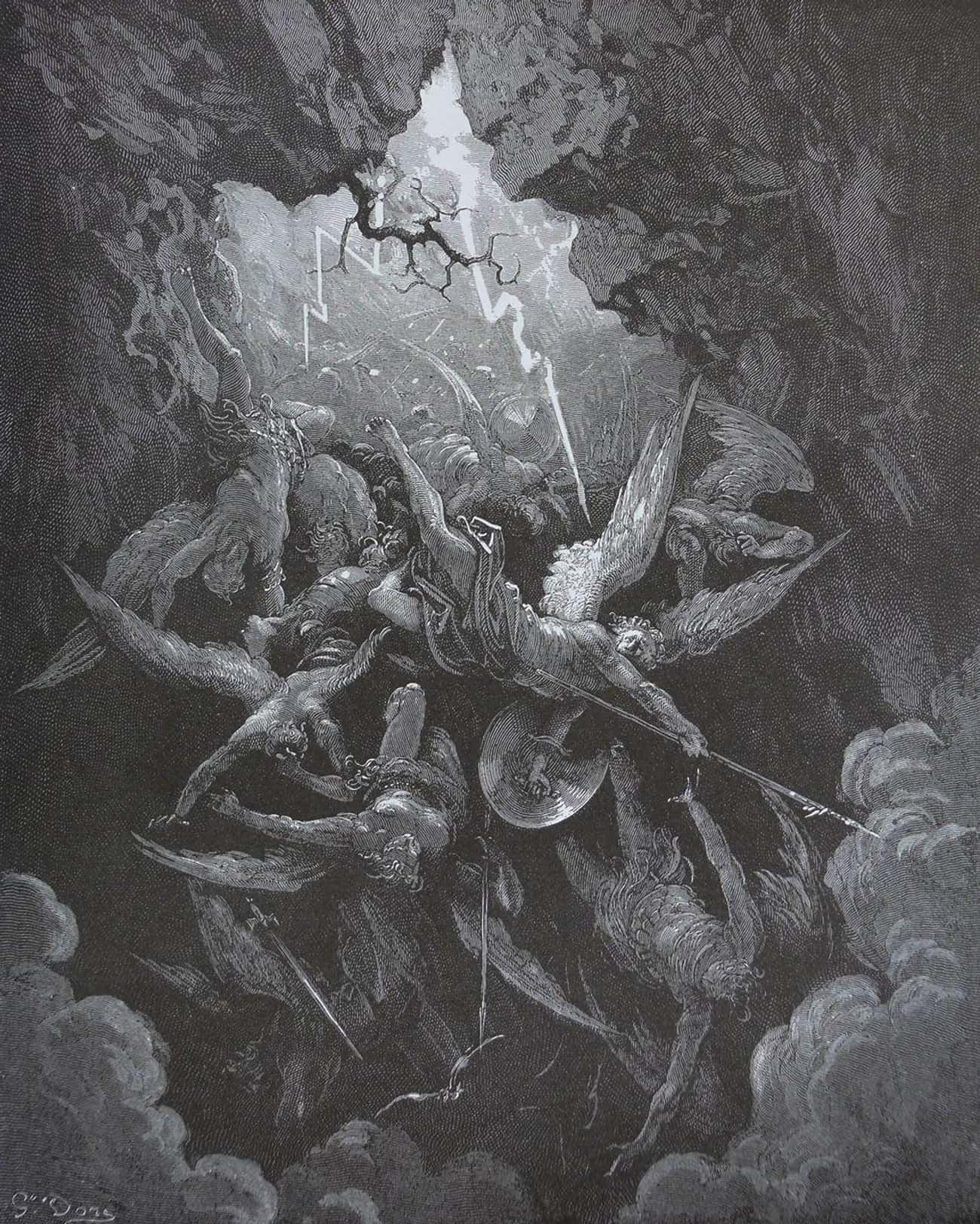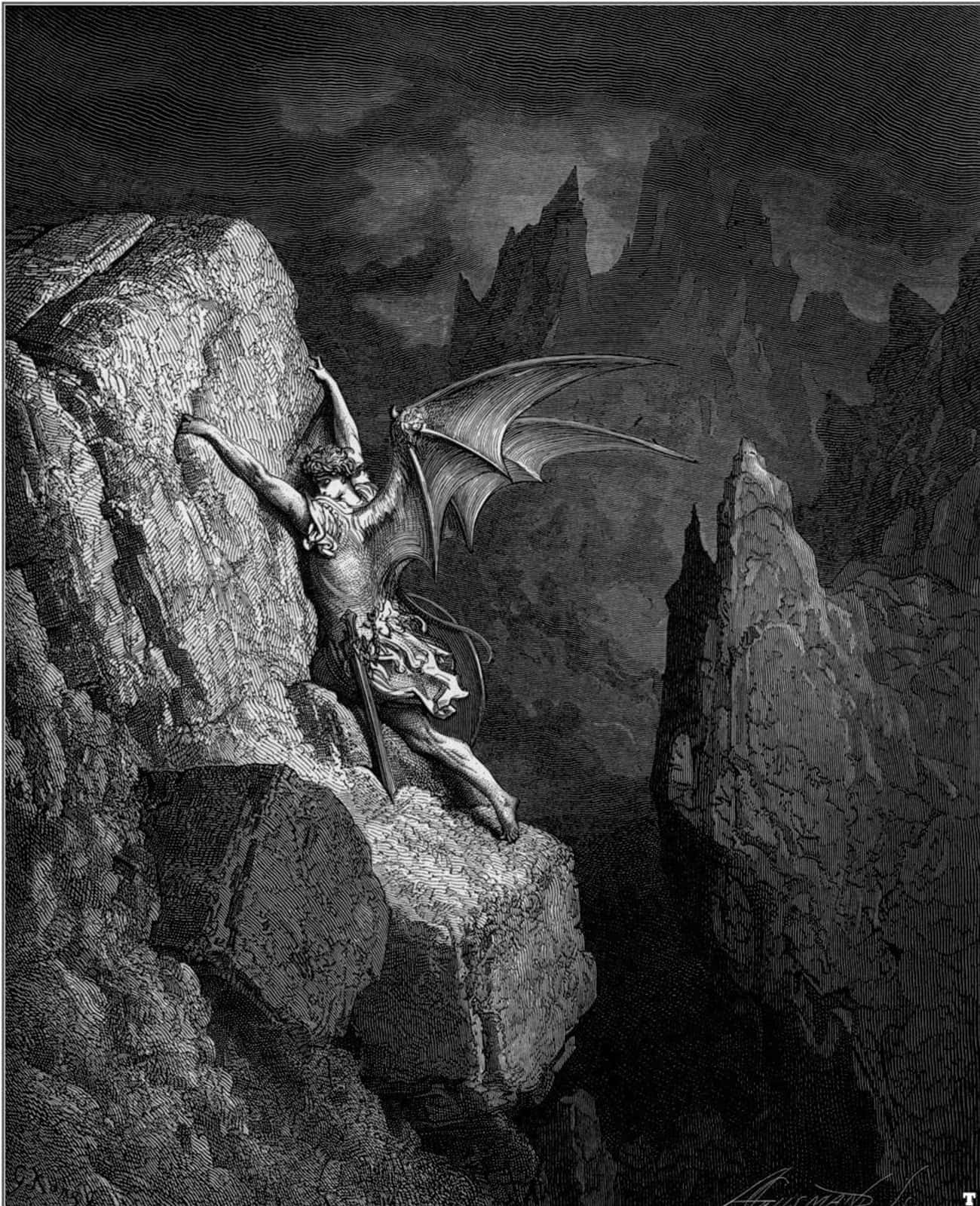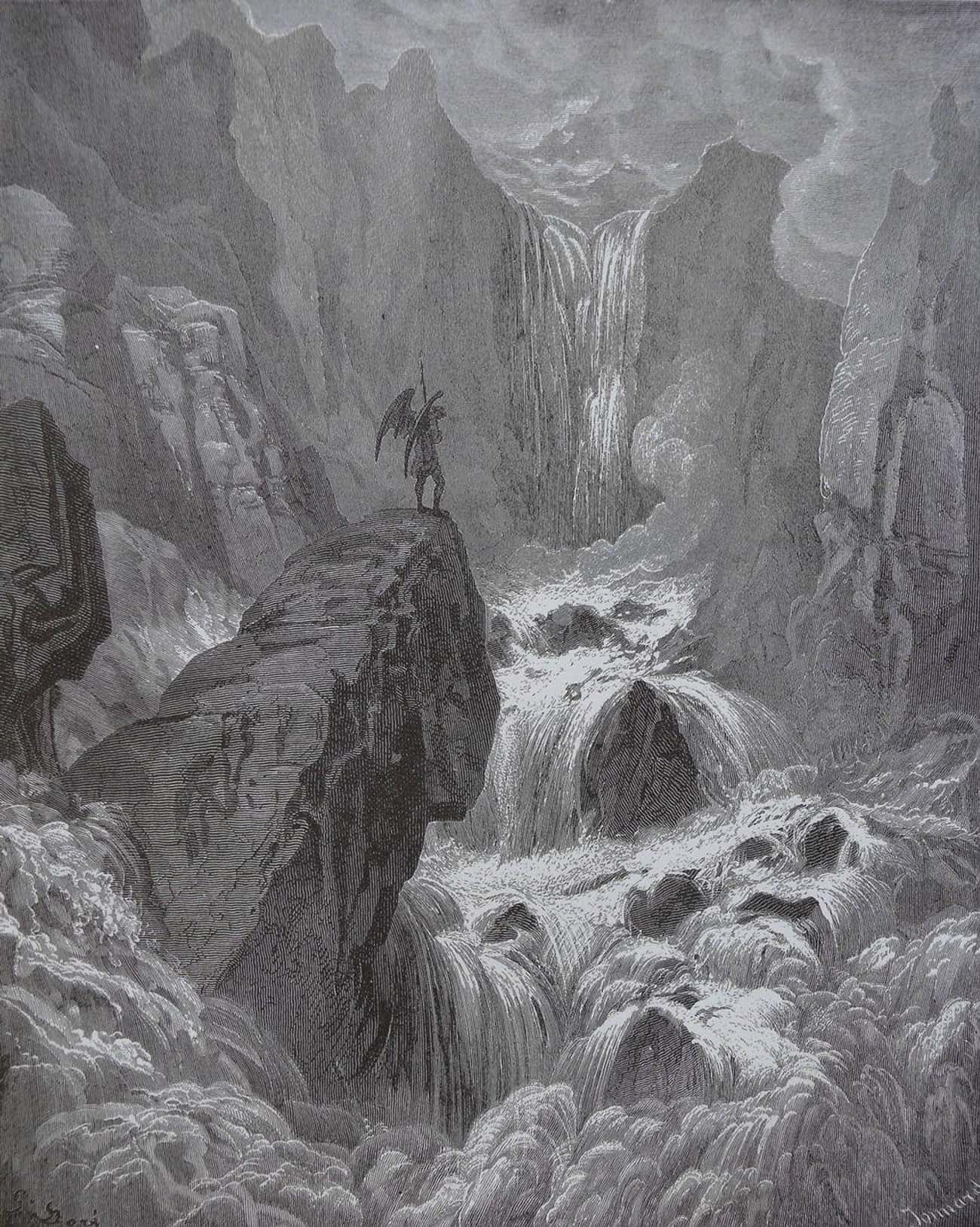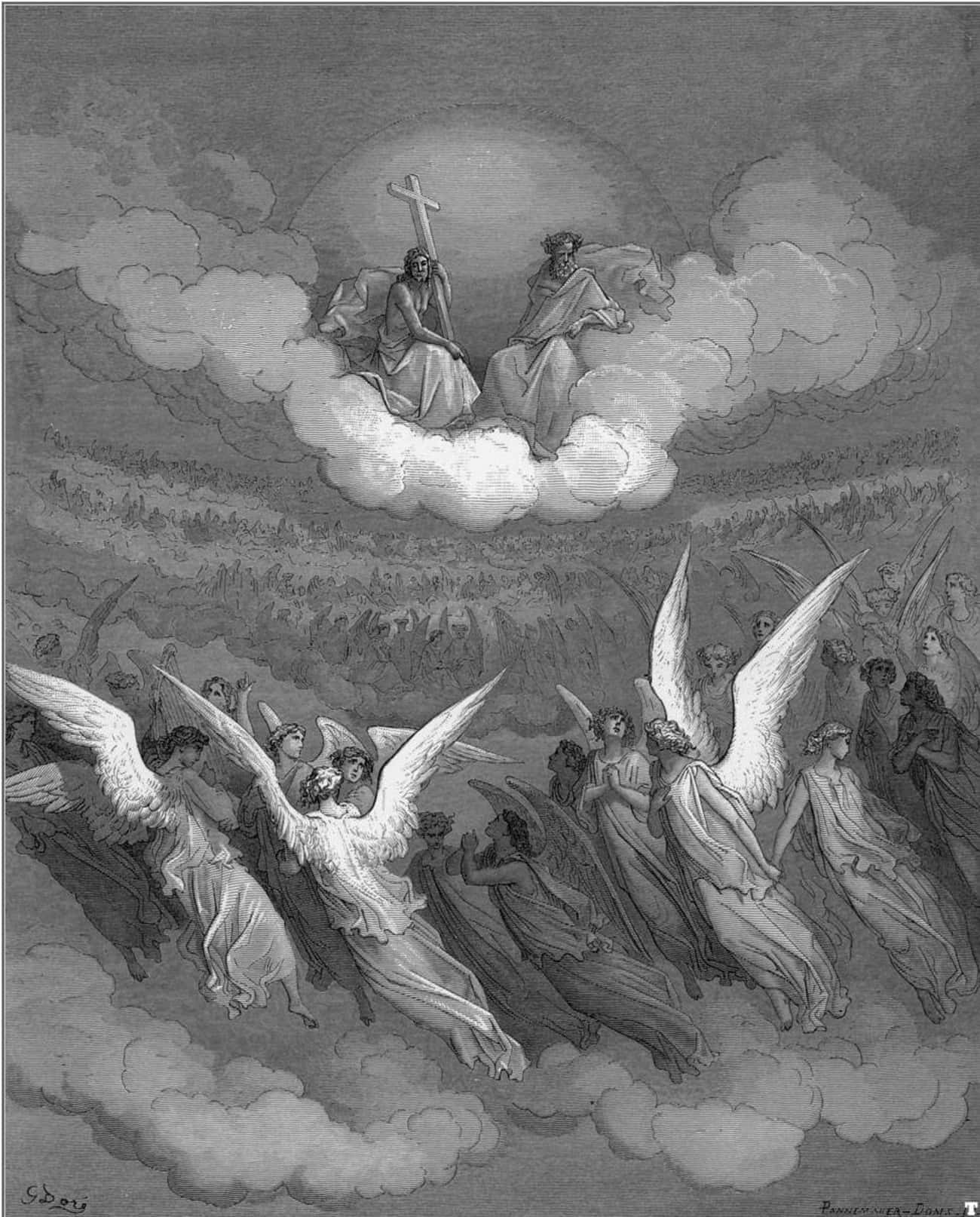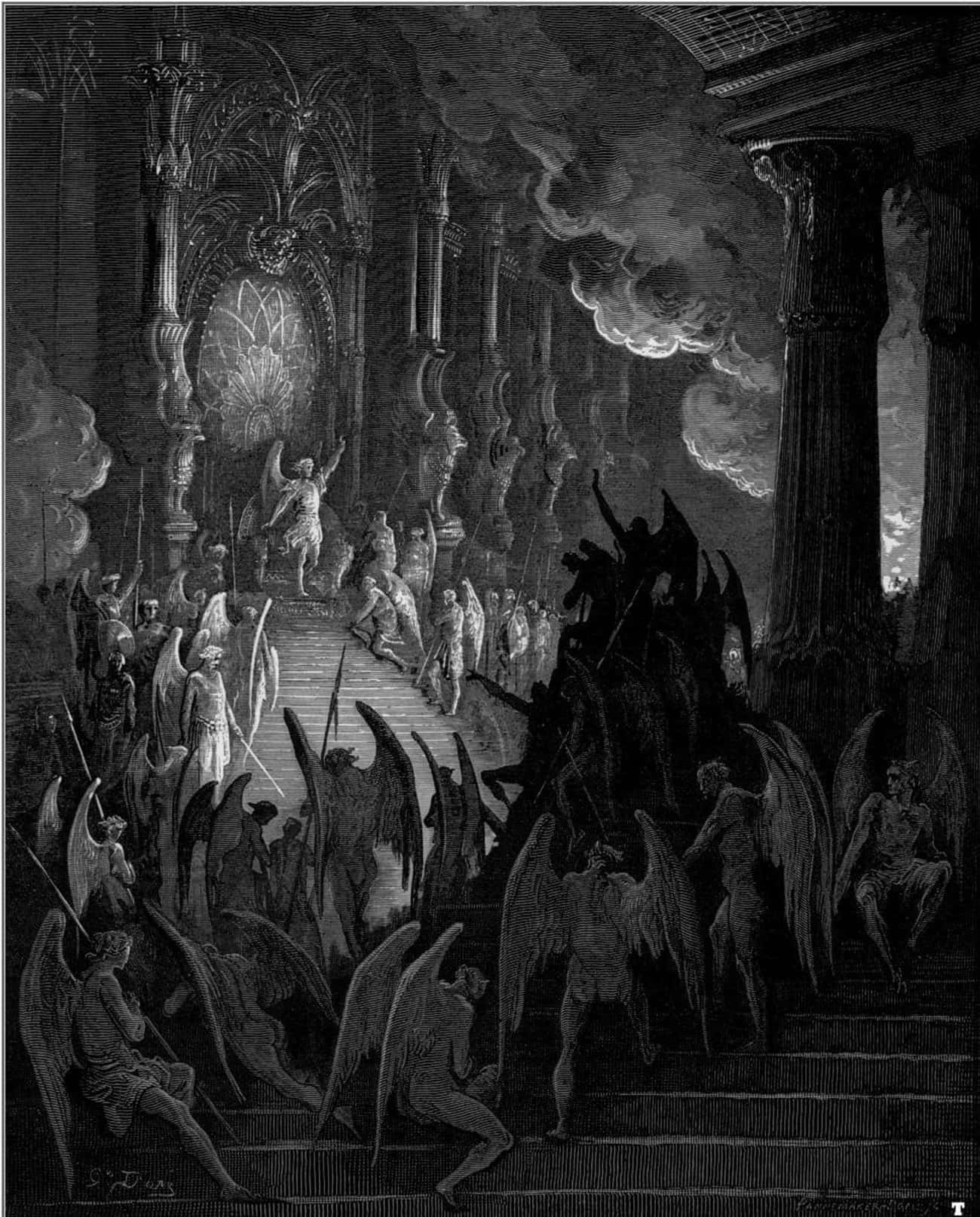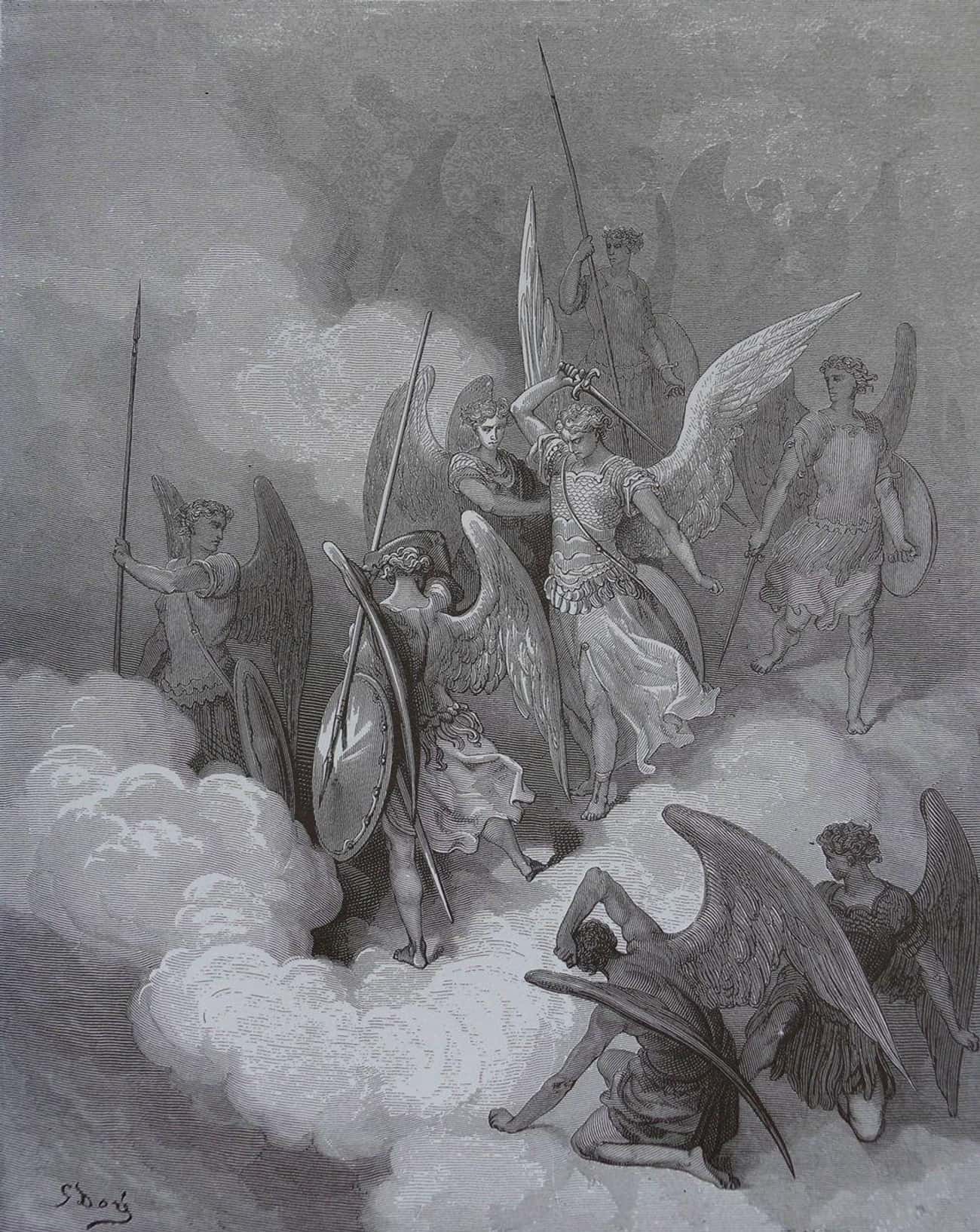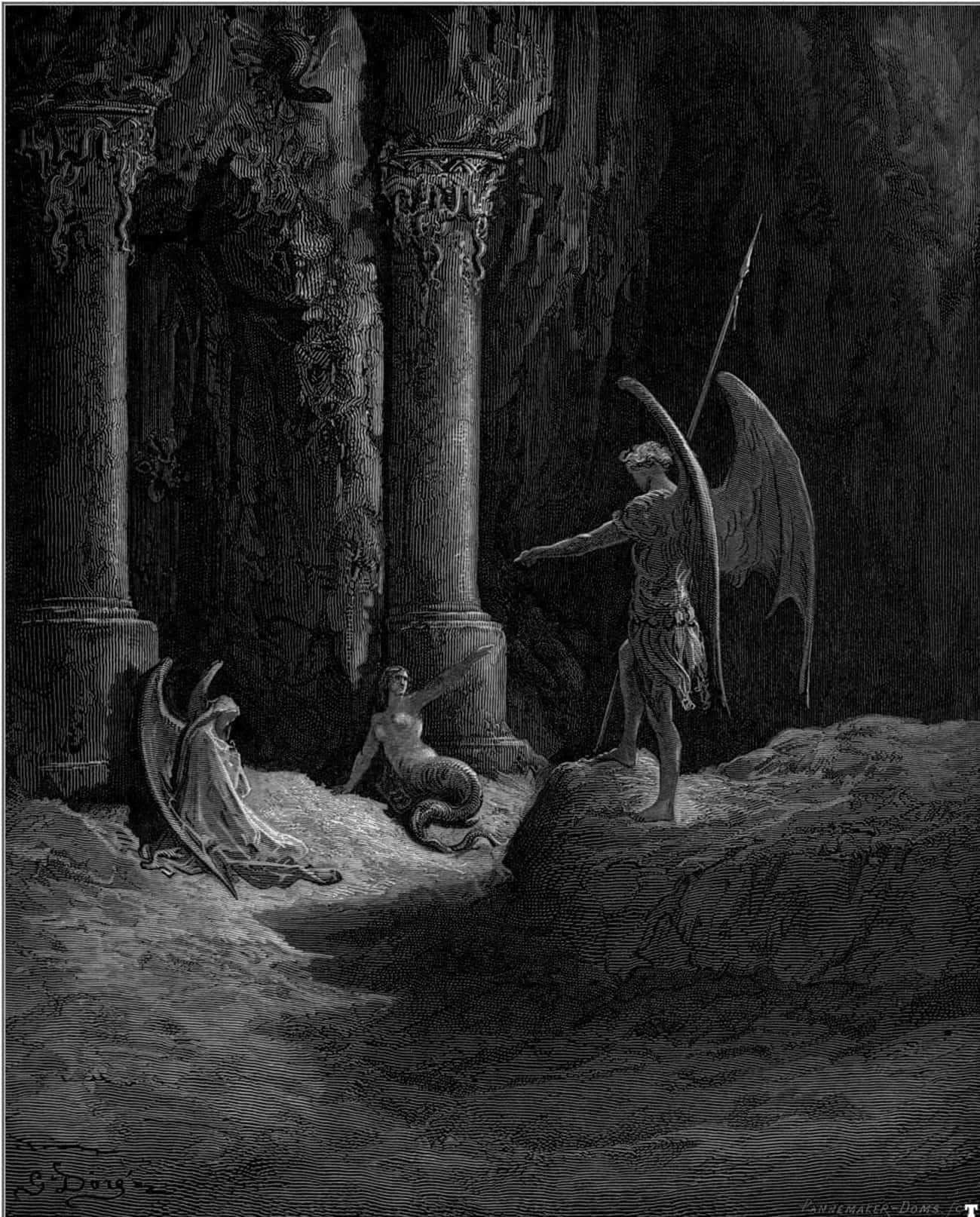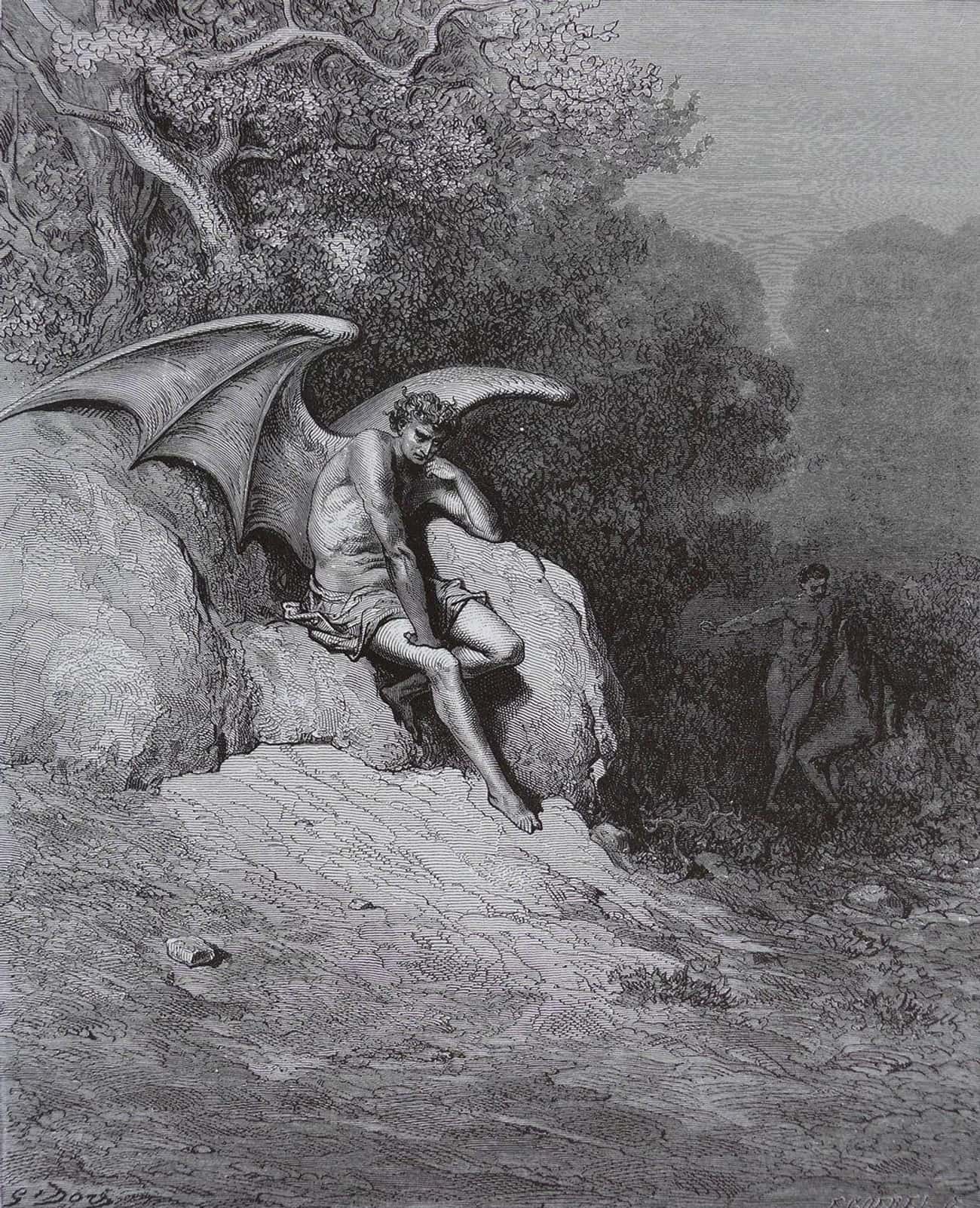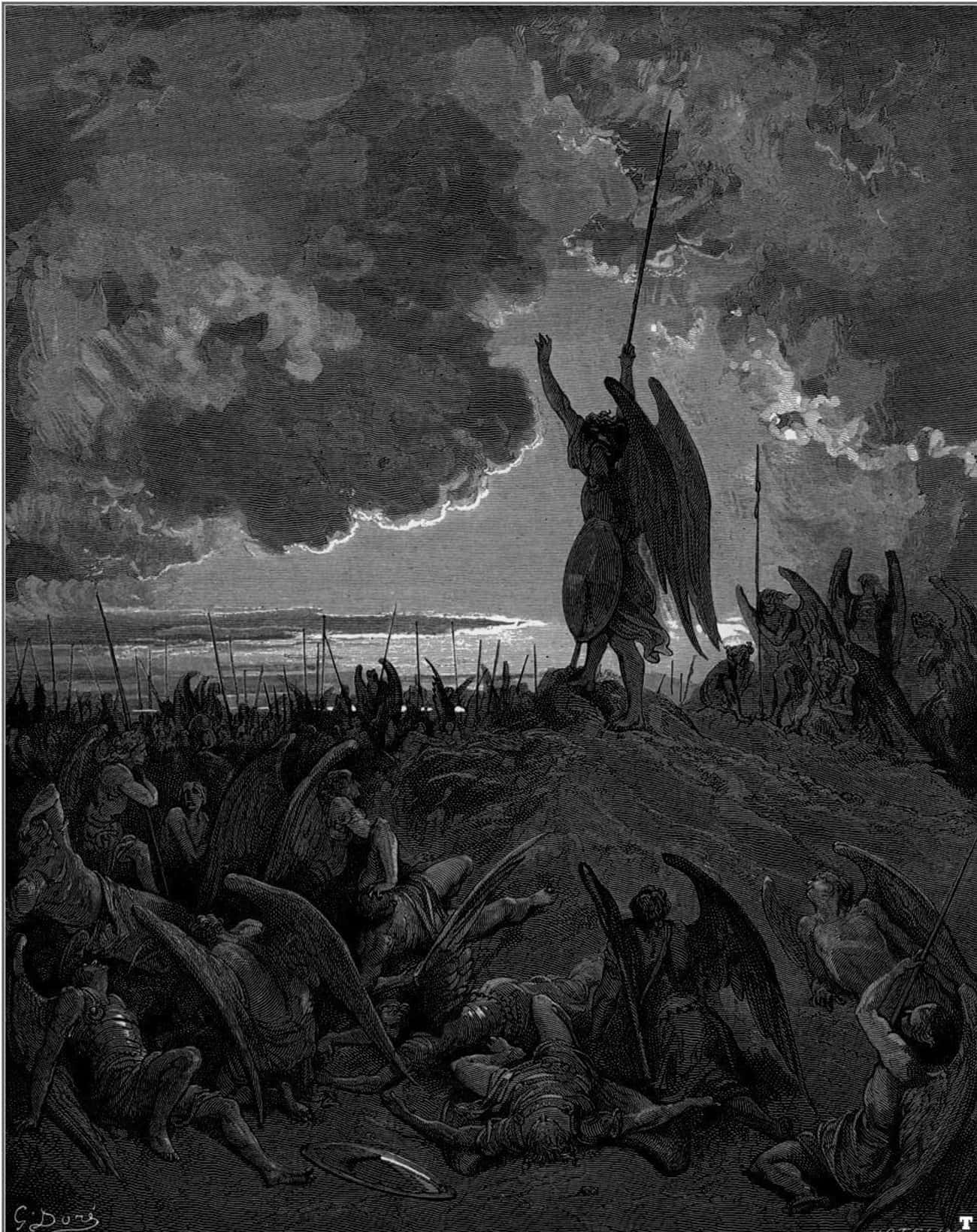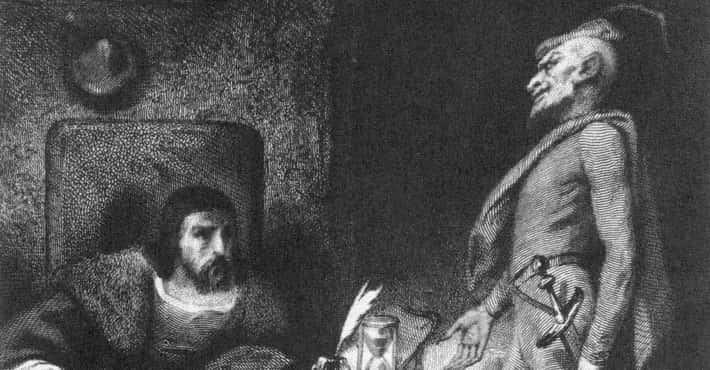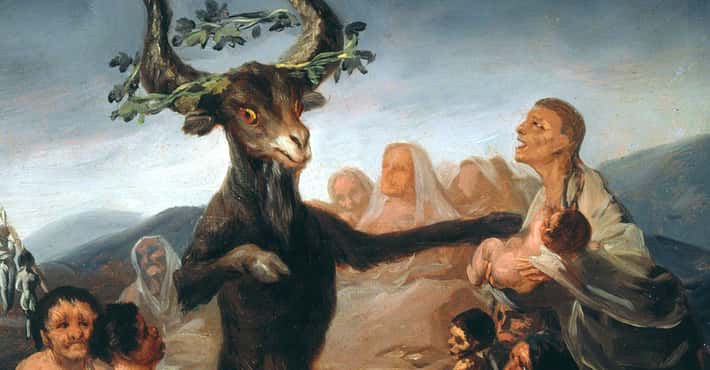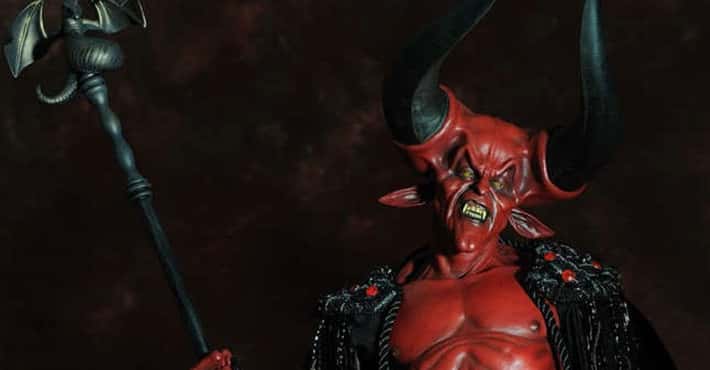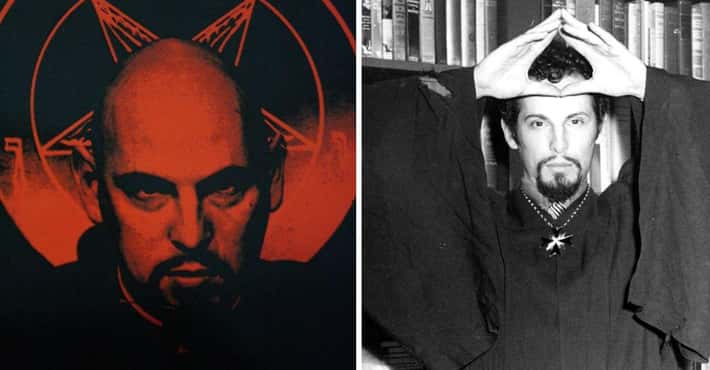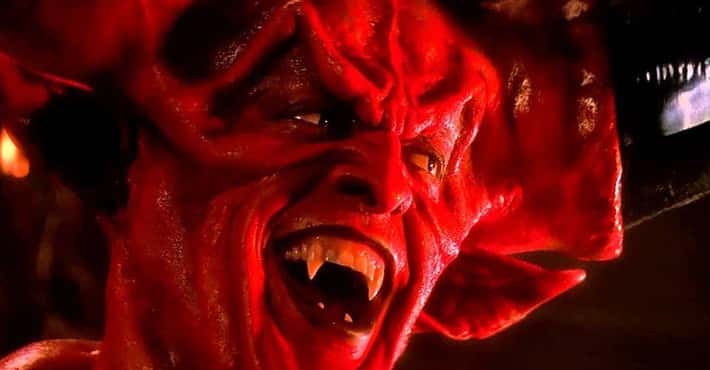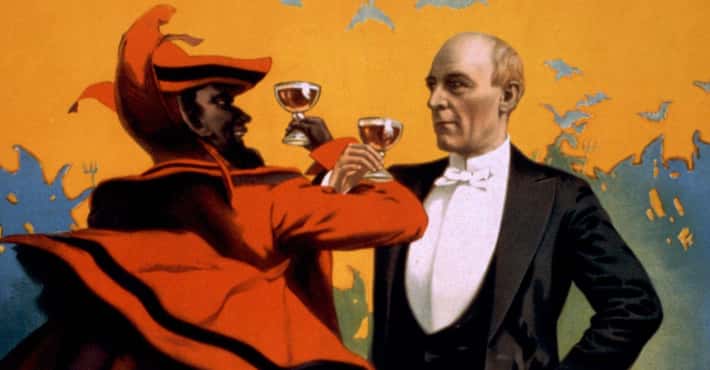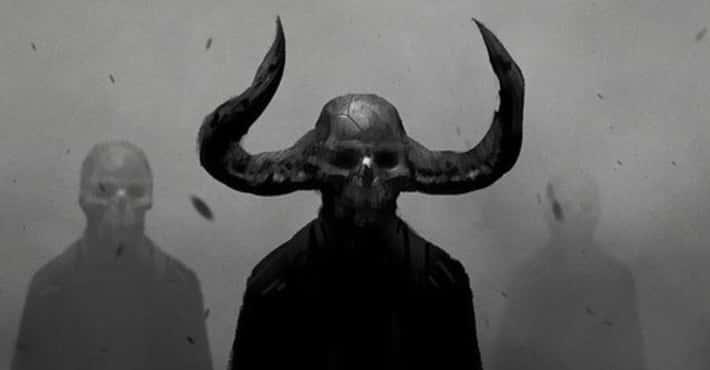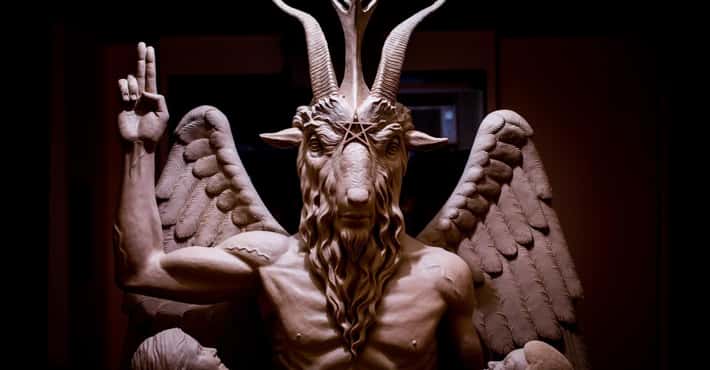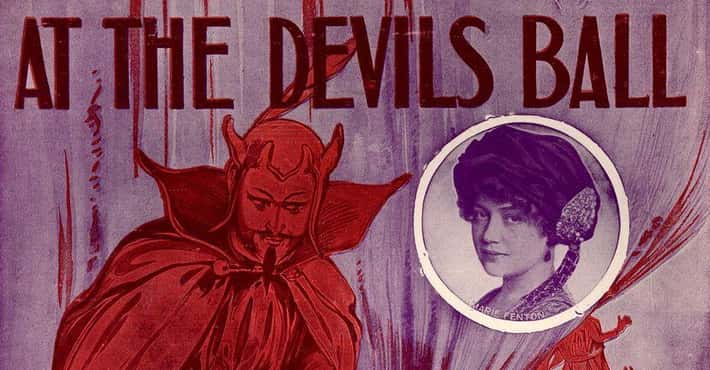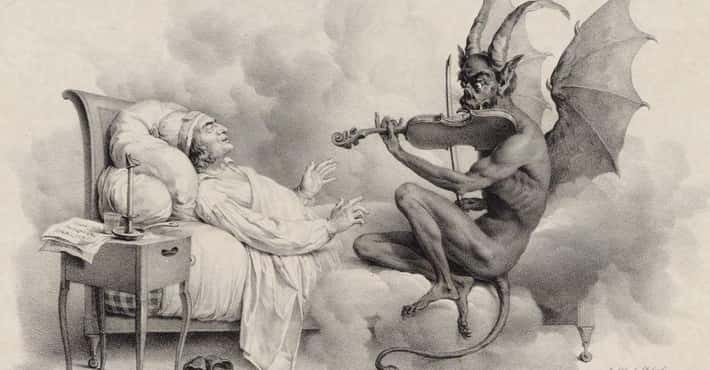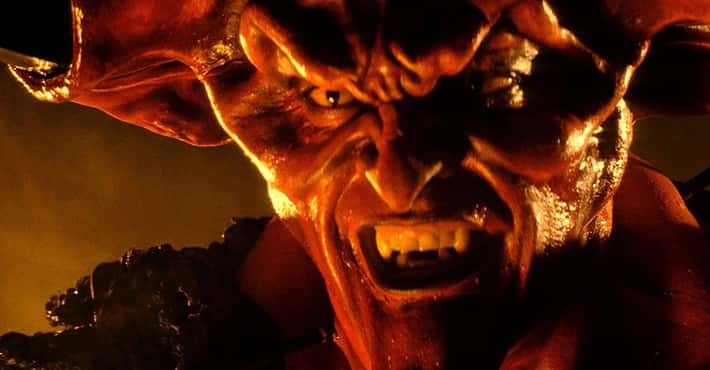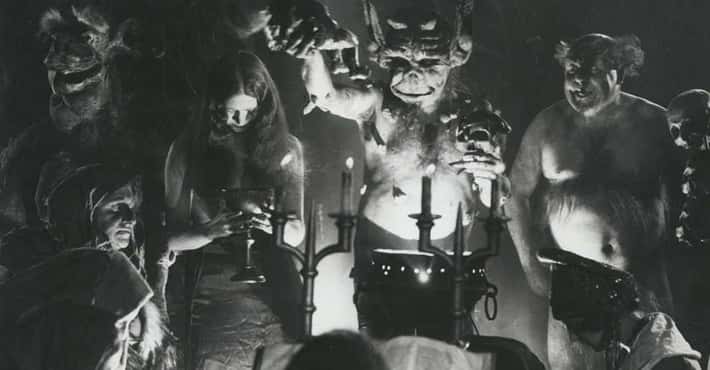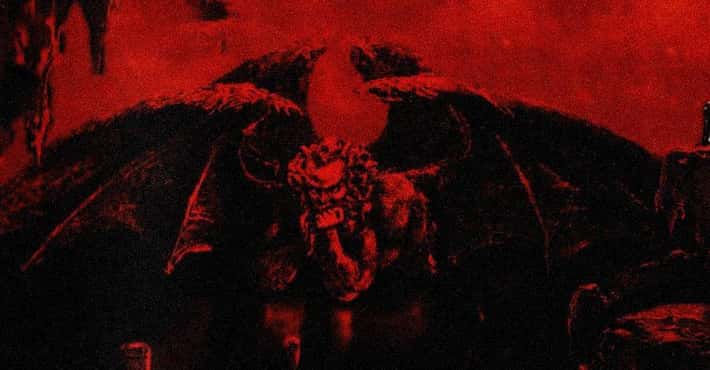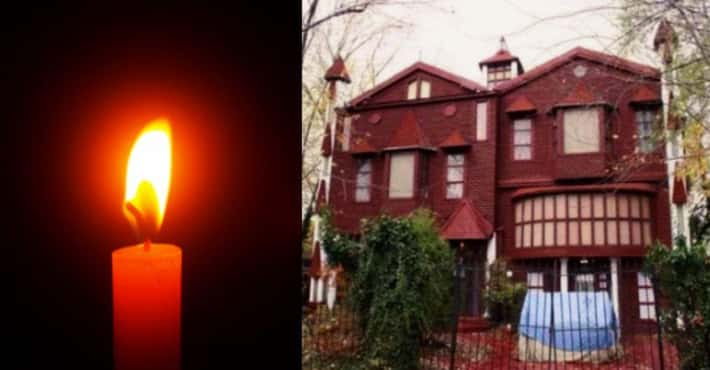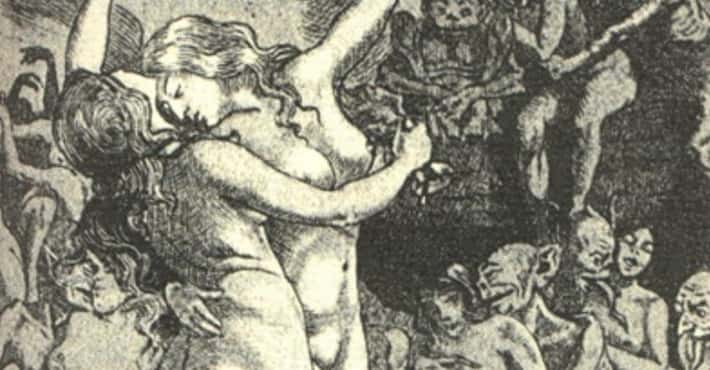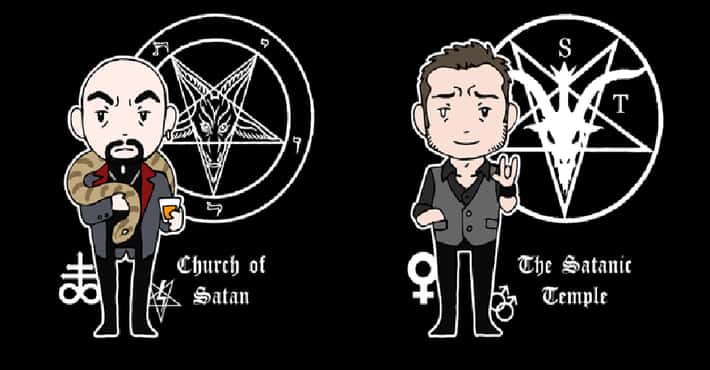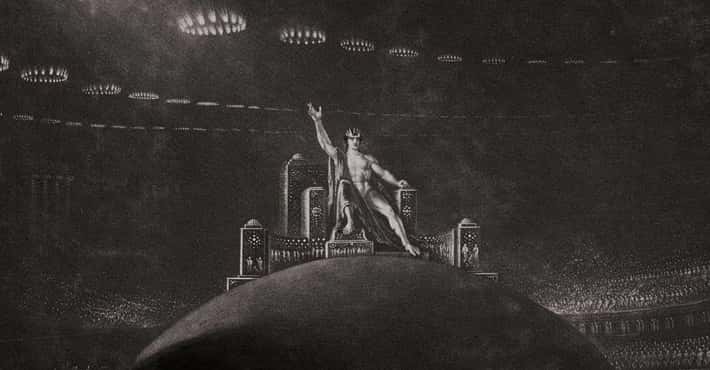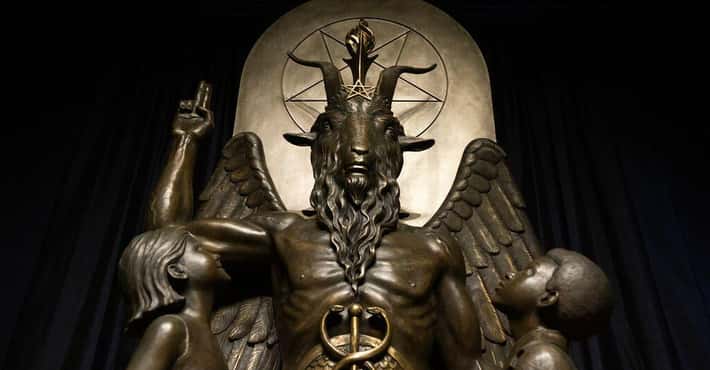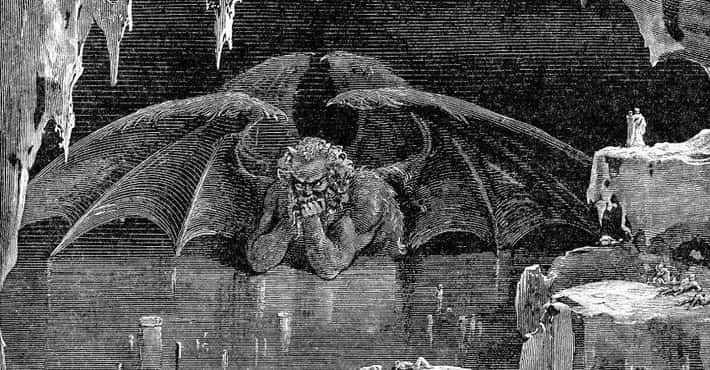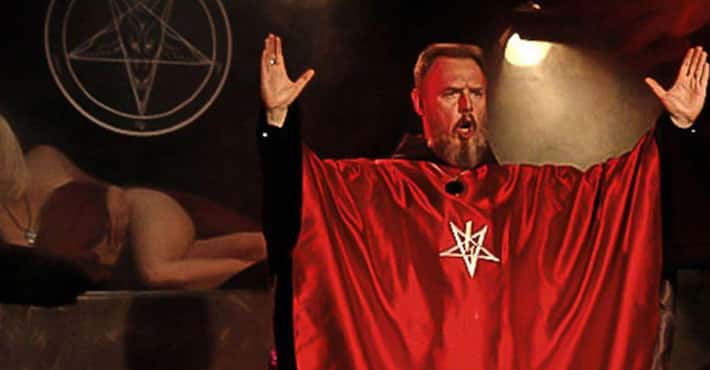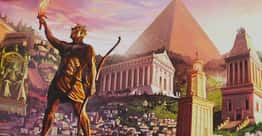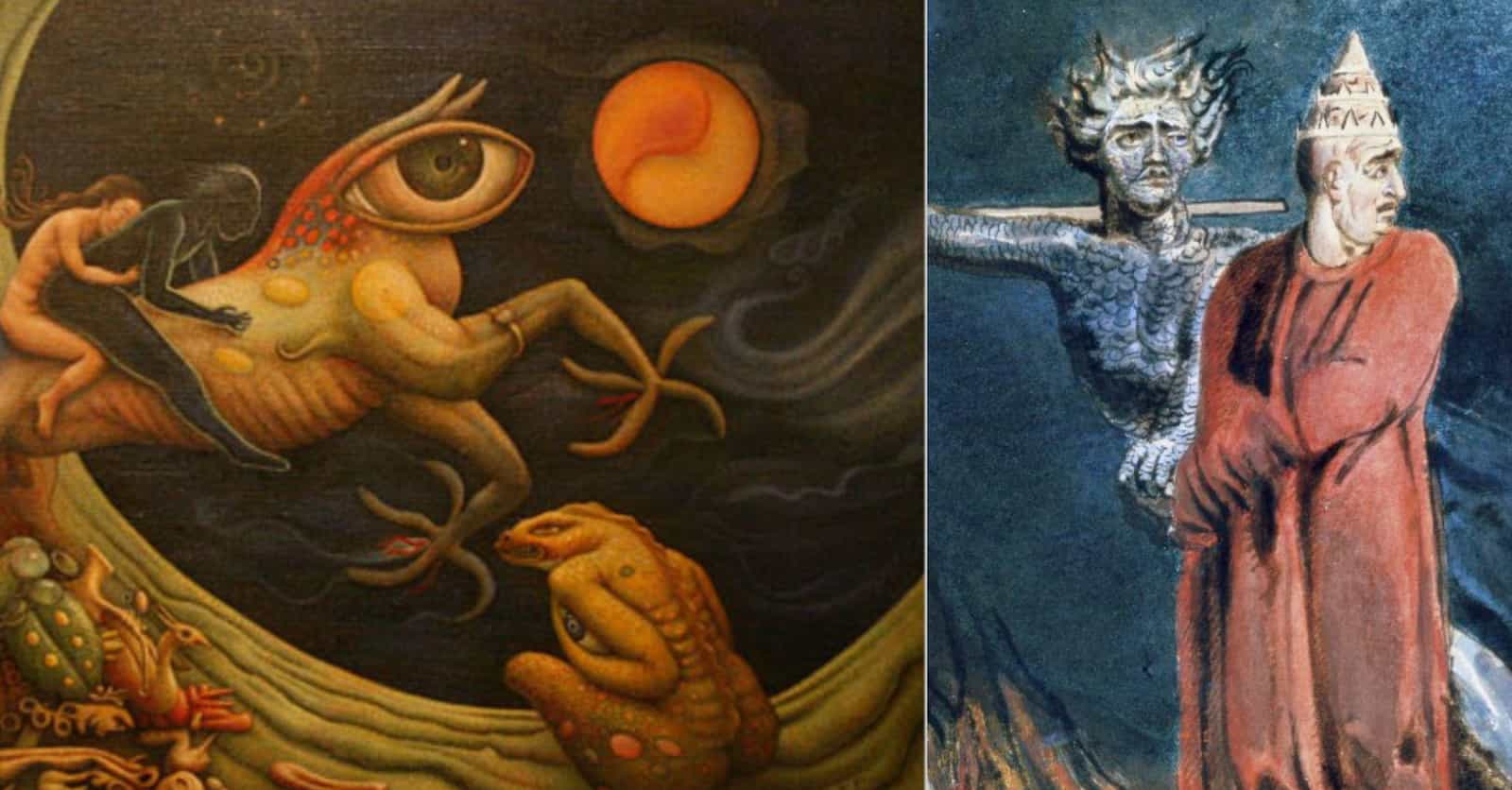
Your Entire Idea Of Satan And Hell Are Based On ‘Paradise Lost’ You Just Didn't Know It
'Paradise Lost' Introduced The Idea Of Hell Existing Beneath The Earth
Photo: Gustave Doré / Wikimedia Commons / Public DomainBefore Paradise Lost, the locations of Heaven and Hell were ambiguous. The Bible itself never specifies a location, and only discusses it in the abstract: that it is deep, or exists as a pit, or has levels. Mostly, the Bible states that it is a place of suffering for those who do not believe in Christ as their savior, but never really gets into where this suffering happens.
Milton’s Paradise Lost altered that perception quite dramatically. Milton envisioned that Heaven and Hell are physical locations that exist parallel to the Earth, sandwiching it. Their locations further his theme of hierarchy, which is explored in great detail throughout the poem. Milton specifically states that Heaven sits above the earth, which dangles from it by a golden chain. Those who prove their faith can climb the chain and join God and his angels for eternity. On the opposite end of things, Hell sits below the earth, linked only by a wide bridge into it. Getting to Heaven is tough - climbing that chain is an exhausting and demanding trial for entry. Meanwhile, entering Hell is easy - simply stroll across a bridge. Basically, Satan’s temptation made real. However, this image is so powerful and compelling that it has taken over what many believe about Heaven and Hell in Christianity.
Satan Is A Sympathetic Antihero While God Is A Childish Bully
Photo: Gustave Doré / Wikimedia Commons / Public DomainParadise Lost starts with Satan as its first character, and it’s set just after his failed rebellion. He, along with Beelzebub and the rest of his fallen comrades, are chained tight at the Lake of Fire, where they suffer the punishment of their disobedience. There they realize just how much more powerful God is compared to them, but their will for independence doesn't break. Rather, they pledge to continue their fight, no matter how slim the chances.
All is not lost; the unconquerable Will,
And study of revenge, immortal hate,
And courage never to submit or yield:
And what is else not to be overcome?And to contrast Satan’s plight and resolve, Milton reveals God’s attitude towards free will - that it’s only good if it’s his will that’s followed. Those who do follow him, blindly, are rewarded with an eternity of happiness, while those who reject him are thrust into an eternity of agony. Because Satan is placed in this interesting, sympathetic light, many Romantic poets lauded him for it. Poet William Blake famously said of Milton’s work:
“The reason Milton wrote in fetters when he wrote of Angels and God, and at liberty when of Devils and Hell, is because he was a true Poet and of the Devil's party without knowing it.”
Fellow poet Percy Bysshe Shelley dismissed the notion that his devil’s characterization was accidental, saying “Milton's Devil as a moral being is [...] far superior to his God... And this bold neglect of a direct moral purpose is the most decisive proof of Milton's genius.”
To Satan, Hell Isn’t A Place - It’s The Torment Of His Own Thoughts
Photo: Gustave Doré / Wikimedia Commons / Public DomainSatan is highly conflicted. He believes that God is a tyrant, and that free will is a lie perpetuated by him - only an unjust ruler would convey free will but then only reward one set of behaviors. Armed with this belief, he fires up his fellow fallen angels in a plot to get revenge for their imprisonment in Hell and to eventually overthrow God.
However, Satan also knows that this is completely futile. God is powerful. Far more powerful than Satan will ever be. Specifically, he ultimately knows that God has power over everyone’s fate, including his own. So, even though he incites rebellion among his allies, he knows that it’s fruitless; God will win no matter what they do. But he has no choice but to perpetuate the lie. Satan understands that Hell isn’t the Lake of Fire, or the deepest pit, it’s his own thoughts.
Then to submit, boasting I could subdue
Th' Omnipotent. Ay me, they little know
How dearly I abide that boast so vaine,
Under what torments inwardly I groane:
While they adore me on the Throne of Hell,
With Diadem and Sceptre high advanc'd
The lower still I fall, onely Supream
In miserie; such joy Ambition findes.Milton Wrote 'Paradise Lost' As A Political Allegory
Photo: Gustave Doré / Wikimedia Commons / Public DomainMilton was devout throughout his entire lifetime - he actually joined the Protestant church when he was young, which caused him to be disowned by his Catholic family. Later in life, he radicalized even further as a Puritan, and wanted to remove all traces of Catholicism from the Church of England. He was also incredibly political and even held public office for a time.
In the mid 17th century, England was going through serious political upheaval. There was a huge civil war which upset the ruling order, and many vied for control of the country. Milton was vehemently opposed to a monarchy and was incredibly outspoken against the British crown. Luckily for him, his side won, and the crown was ousted, at least for a time. In 1660, the crown was restored to the throne, to the chagrin of all those who supported the commonwealth before it. Many supporters including Milton were placed in jail for their criticism of the monarchy.
Milton was not pleased, to say in the least. His frustration and anger at the monarchy bled into Paradise Lost, which is easily seen as an allegory for his political beliefs. God represents the tyranny of the monarchy, while Satan represents a rebellious break from that despotic rule.
Hell Has A Hierarchy That Mirrors Heaven’s
Photo: Gustave Doré / Wikimedia Commons / Public DomainParadise Lost is filled to the brim with themes of hierarchy, and Milton explores it to the fullest with every character within. The basic premise is that God sits atop everything, followed by his most loyal angels, which is mirrored by Satan and his followers. But it isn’t just about hellish seating charts - Milton’s theological universe also has a hierarchy to it - Heaven sits above the Earth, which sits above Hell.
What’s interesting with the hierarchy between Heaven and Hell is that their rebellion was centered around their desire to leave such a hierarchy. And yet, Satan sits on the throne and consults with his most loyal lieutenants, much like God and his archangels. The Bible itself makes no mention of any such hierarchy in Hell, only that Satan exists there, and that he comes up to Earth and brings his temptations with him. In fact, many of the names of his lieutenants in Paradise Lost, such as Beelzebub, are simply alternate names for Satan in the Bible.
It's also worth noting that Adam and Eve, unfortunately, have a hierarchy. Keep in mind that this was written and printed at a time when sexism was deeply ingrained in society; in both the Bible and in Paradise Lost, Adam is considered Eve’s superior. And the two of them, as a couple, stand above the rest of humanity.
Satan Is Characterized As A Revolutionary Leader Who Vies For Freedom From Tyranny
Photo: Gustave Doré / Wikimedia Commons / Public DomainParadise Lost starts with Satan in chains at the Lake of Fire with his trusted lieutenant Beelzebub. They proceed to gather all of the fallen angels that are down in Hell with them to build their new capital - Pandemonium. Despite their crushing defeat, Satan decrees that their vengeance isn’t over, and tells them that they’ve only just begun.
All is not lost - the unconquerable will,
and study of revenge, immortal hate,
and courage never to submit or yield:
and what is else not to be overcome?At least, that’s how Satan argues his side of the coin, and his followers happily lap it up. But in truth, Satan is beset by his own inadequacies in comparison to God. He sparked his own rebellion as he believed that God had no place above him - that he was God’s equal. His defeat showed him the complete opposite - that his fate is decided by God and God alone. And this characterization of Satan has extended well beyond the scant few lines that exist in the Bible about him.
In the Bible, he’s a fallen angel, and he’s definitely jealous of God’s power, but he isn’t propped up to be a charismatic leader of devils; he’s just the most fervent in his beliefs about independence. And although the Book of Revelations does state that there will be a final war in Heaven, it’s not specifically stated that Satan will lead it, only that it will happen between God and his enemies. Mostly, it means that Christ will lead an army of humans against an army of non-believers. The conflict would wipe out the non-believers, allowing only the devout to ascend to Heaven for the rest of eternity.
Paradise Lost changed that perception - today when we think about Armageddon, we believe that Satan will lead a host of demonic forces towards the gates of Heaven in an attempt to overthrow God. Many works of fiction perpetuate this alteration. Take the comic book series Spawn, where the deceased Recon Marine Al Simmons/Spawn is recruited and transformed for the sole purpose of fighting on Hell’s side, specifically for Armageddon.
Satan’s Evil Is Seductive And Tempts Humanity Just To Spite God
Photo: Gustave Doré / Wikimedia Commons / Public DomainEvil manifests itself in many ways in our modern world, be it through greed, or malice, or a simple need to sow chaos. Satan, however, is portrayed in Paradise Lost as being charming and well-spoken. In fact, he is presented as the most charismatic and persuasive character in the entirety of the poem, which is in total contrast with God, who doesn’t need to be persuasive - he is simply followed without question.
And therein lies the main conflict of Paradise Lost - Satan opposes God’s immutable decrees with his own strength of charisma. His most fearsome feature isn’t blood-red skin, rippling muscles, or goat legs, but rather his ability to masterfully manipulate people using only his words. In the story, Satan’s greatest achievement is when he takes over the body of a sleeping serpent in the Garden of Eden in an effort to thwart God’s plan for humanity. And in that guise, he’s able to convince Eve to take a bite of an apple from the Tree of Knowledge, in direct defiance of God.
In the Bible, the serpent is just a serpent, and though they represent deception and cunning, are not in and of themselves devils. It is because Milton imbued Satan with incredible powers of deception and persuasion that subsequent characterizations followed suit, and has even affected public perception regarding the nature of said serpent.
For example, in the film The Devil’s Advocate, high-powered lawyer John Milton (Al Pacino), AKA Satan, manipulates his own son, Kevin Lomax (Keanu Reeves), into helping him build their devilish legacy as a family. Both possess the trait of supernatural persuasion to the point where Lomax easily gets dangerous murderers acquitted of their charges in court.
Satan’s Masterful Deceptions Fool Everyone But Himself
Photo: Gustave Doré / Wikimedia Commons / Public DomainSatan in Paradise Lost is an incredibly sympathetic character simply because of the deep conflicts he holds inside him. His rebellion is due to the desire to escape God’s tyranny, and his actions always further this desire, albeit desperately so. Throughout the book he knows deep down that there is no escape from that tyranny, and the only thing that his rebellion has achieved is distance - they can never escape from under his thumb. No matter what they do, they will always be at the mercy of their own creator. So he fools everyone who follows him about their own power, independence, and promises revenge on Heaven.
"Better to reign in Hell than serve in Heaven."
Interestingly, this duality is also mirrored in antiheroes throughout our more celebrated fictional works. Walter White in Breaking Bad is a devoted, loving father on one hand, and a murderous backstabbing drug kingpin on the other. Don Draper from Mad Men is another analogue to the devil; his duality exists in his silver tongue: “What you call love was invented by guys like me... to sell nylons.” And then there’s Lucifer, a TV show where the titular Lord of Hell abandons his throne so he can come up to the surface, run a nightclub, and solve crimes in Los Angeles.
Satan’s Vengeance Is Motivated By His Selfishness And Arrogance
Photo: Gustave Doré / Wikimedia Commons / Public DomainSatan launches his initial rebellion against God simply because he comes to believe that his own power rivals or even exceeds that of God. His actions throughout the entire poem are driven by his need to equalize himself with God and prove his ability to remain independent of his creator. And throughout the story he makes many attempts to prove his point and sharpen his edge, all the while promising revenge to his followers.
Eventually, it culminates in his greatest deception - the corruption of Adam and Eve. He imbues them with his own pride and arrogance, which causes them to fall in God’s eyes. It’s a victory to him, because he influenced God’s greatest achievements, something that should have been impossible to do. And it puts him one step closer towards his vengeance.
By the end, however, he knows that his belief is a lie, and that his attempts are fleeting. He may have independence, but he realizes it’s only through God’s grace that he even has it in the first place.
Satan’s Powers Of Persuasion And Deception Are Strengthened By His Ability To Shapeshift
Photo: Gustave Doré / Wikimedia Commons / Public DomainIn Paradise Lost, Satan displays his ability to shapeshift into the terrifying Leviathan, a creature of immense proportions. He becomes so large that sailors believe he's actually an island and try to anchor on it. Later, when he attempts to enact his revenge, he first transforms into a bird so he can fly into the Garden of Eden. Then, when he finds Eve, he stalks her as a lion, and then a tiger. Finally, he takes the body of a serpent, with which he convinces Eve to disobey God by eating an apple from the Tree of Knowledge.
What's amazing is that his shapeshifting serves two narrative purposes. First, it shows Satan in contrast to God - Satan changes constantly, to whatever suits his needs best. He’s adaptable, cunning, and clever. On the other hand, God never changes - he is absolute and unmoving; his omnipotence commands obedience and has no need to change.
And then, it drives home the point that Satan is incredibly powerful - enough to awe or to destroy or to deceive. But it still isn’t enough to overcome God, and never will be.


